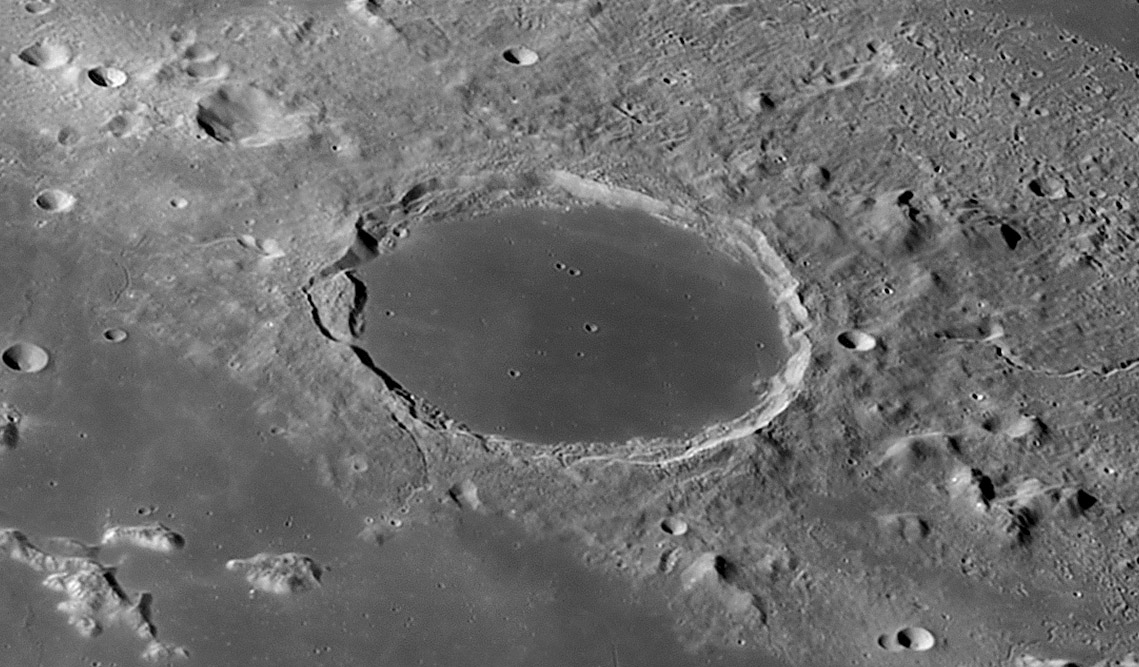|
|
| (5 intermediate revisions by the same user not shown) |
| Line 1: |
Line 1: |
| | __NOTOC__ | | __NOTOC__ |
| | =Tell Me a Story= | | =Tell Me a Story= |
| | + | <!-- Start of content --> |
| | <div class="post" id="post-1339"> | | <div class="post" id="post-1339"> |
| | | | |
| Line 6: |
Line 7: |
| | <p>[[File:Plato-08-03-07LPOD.jpg|Plato-08-03-07LPOD.jpg]]<br /> | | <p>[[File:Plato-08-03-07LPOD.jpg|Plato-08-03-07LPOD.jpg]]<br /> |
| | <em>image by [mailto:STARMAN2@allegiance.tv Wes Higgins]. Some pictures don’t need a story, but they are always there - notice the layering in Plato’s far wall… </em></p> | | <em>image by [mailto:STARMAN2@allegiance.tv Wes Higgins]. Some pictures don’t need a story, but they are always there - notice the layering in Plato’s far wall… </em></p> |
| − | <p>I have been sorry to learn recently that some people think that I am unfair in selecting images for LPOD. Apparently there is a feeling that I choose poor images from some folks while overlooking better ones fron others. I have to admit that is probably true sometimes. It is difficult to choose images for LPOD because we have some extraordinary ones (such as today’s) that set almost impossibly high standards. But I try to mix in many other images that aren’t so excellent. I do this because I want to encourage everyone, and sometimes I see something in an image that I haven’t noticed before. The images in LPOD allow me to tell stories - if a submitted image is great, but doesn’t speak to me, I don’t use it. When LPOD features images taken with small telescopes or with relatively poor resolution it is because I find a story in them. The hardest part of writing a daily LPOD is finding the story: a science story, a history story or a human story. I usually have no idea what it will be when I sit down at night to look at submitted images. I look back and forth at all I have until an idea comes into my mind. I encourage everyone to make my job more difficult by submitting many images - especially of areas that [http://www.lpod.org/?m=20060215 seldom appear] in LPOD. And If I don’t use your image, its not because I don’t like you, or that your image is poor. Its because my imagination didn’t find a story in your picture. I do encourage everyone to add their images to the LPOD [http://www.lpod.org/coppermine/ Photo Gallery] (2078 so far!) where they can be admired (117,734 users have visited over the last 18 months!), and perhaps used in [http://the-moon.wikispaces.com/Introduction the-Moon Wiki] or even <em>recycled</em> in LPOD. </p> | + | <p>I have been sorry to learn recently that some people think that I am unfair in selecting images for LPOD. Apparently there is a feeling that I choose poor images from some folks while overlooking better ones fron others. I have to admit that is probably true sometimes. It is difficult to choose images for LPOD because we have some extraordinary ones (such as today’s) that set almost impossibly high standards. But I try to mix in many other images that aren’t so excellent. I do this because I want to encourage everyone, and sometimes I see something in an image that I haven’t noticed before. The images in LPOD allow me to tell stories - if a submitted image is great, but doesn’t speak to me, I don’t use it. When LPOD features images taken with small telescopes or with relatively poor resolution it is because I find a story in them. The hardest part of writing a daily LPOD is finding the story: a science story, a history story or a human story. I usually have no idea what it will be when I sit down at night to look at submitted images. I look back and forth at all I have until an idea comes into my mind. I encourage everyone to make my job more difficult by submitting many images - especially of areas that [[February_15,_2006|the-Moon Wiki]] or even <em>recycled</em> in LPOD. </p> |
| | <p>[mailto:tychocrater@yahoo.com Chuck Wood]</p> | | <p>[mailto:tychocrater@yahoo.com Chuck Wood]</p> |
| | <p><strong>Technical Details:</strong><br /> | | <p><strong>Technical Details:</strong><br /> |
| | 08-03-07 10:15 UT. 18" Reflector, Infinity 2-1m camera, MAP - 40, stack of 500 frames.<br /> | | 08-03-07 10:15 UT. 18" Reflector, Infinity 2-1m camera, MAP - 40, stack of 500 frames.<br /> |
| − | [[Plato-08-03-07.jpg|Here is the entire scene]]</p> | + | [http://higginsandsons.com/astro/images/Plato-08-03-07.jpg Here is the entire scene]</p> |
| | <p><strong>Related Links:</strong><br /> | | <p><strong>Related Links:</strong><br /> |
| | Rükl plates 3 & 4</p> | | Rükl plates 3 & 4</p> |
| − | <p align="center"> | + | <p><b>Yesterday's LPOD:</b> [[August 24, 2007|Halving the Depth]] </p> |
| − | <i>You support [http://www.lpod.org/?page_id=591 LPOD] when buying lunar books (or ANY book) from Amazon!</i></p> | + | <p><b>Tomorrow's LPOD:</b> [[August 26, 2007|A Faulty Story]] </p> |
| | + | <!-- Removed reference to store page 2 --> |
| | </div> | | </div> |
| − | ---- | + | <!-- End of content --> |
| − | ===COMMENTS?===
| + | {{wiki/ArticleFooter}} |
| − | Click on this icon [[image:PostIcon.jpg]] at the upper right to post a comment.
| |




